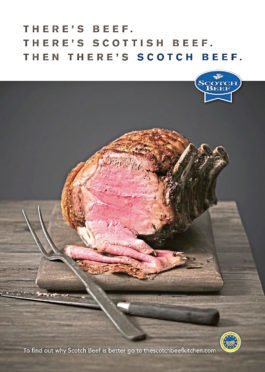Scottish food producers have been warned they are at risk of being flattened by a “Brexit juggernaut”, which is hurtling towards them at full speed.
Perthshire beef and lamb producer Jim Fairlie told a debate on the future of post-Brexit food and farming at Stirling Mart that his fellow farmers were too busy running their businesses to do anything to avoid the potentially disastrous consequences for the industry of leaving the EU.
“We’re running to stand still, and no one has a spare minute,” he said. “We’re talking to ourselves, in vacuums.”
However Mr Fairlie, who set up the first Scottish farmer’s market in the wake of BSE, appealed to farmers to work collaboratively to secure a future for branded Scottish produce.
“Let’s make some assumptions that the funding is going to be cut, that we are going to have international trade deals that we might not be comfortable with,” he said.
“You can sell nothing if your brand doesn’t work for you, so we need to protect the Scottish brand whether it is beef, lamb or pork. We have to sell the provenance and quality we are renowned for.
“We’re already getting more money for our beef than anywhere else in the world and we can’t make it pay. So how do we change that? There are a billion middle-class consumers in Asia who all want to buy French champagne and single malt whisky.
“Let’s take grass-fed Scotch Beef and ride on the coat-tails of the whisky industry and sell them the best beef – bar none.”
NFU Scotland president Andrew McCornick agreed but said there had to be “horizontal collaboration” in the food chain. He said: “We need to get the security that everyone will get a share of the margin to deliver more money back to the farm so there will be less need for support. But there are parts of Scotland’s agricultural industry which will need support, a stability payment if you will.”
However some producers in the audience warned of cheap hormone-injected beef being imported from the US.
James Barrie said: “If the imports that come are produced with hormones, that’s what I’ll have to do because I want to survive.”
Scotland Food and Drink chief executive James Withers warned of the dangers of “a race to the bottom”.
“In that case we would lose,” he said. “Because the only thing we would be competing on is price, and if we’re competing on the world or even UK stage on price, we’d be quicker turning the lights off, going home and doing something else.”
